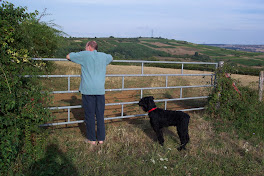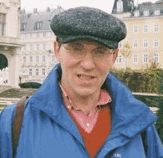- Diigo - which I think is brilliant in both concept and application.
- Youtube as a source of learning resources and in particular the work of Commoncraft
- Google reader. I have since explored other readers in particular Attensa - but found it hung google up and it took a while to unistall the addin.
Saturday 8 December 2007
Life goes on
The social software course is over, and I think I got a lot from it. My biggest gains are
Thursday 22 November 2007
Keeping up
The problem I have is keeping up. There is so much to read and so much to try. . . . . . and everything I read, leads on to more things to read and try. Does it ever end?
It used to be said that the great scientist in the 18th and 19th centuries were famous in all fields. They did a bit of physics, a bit of chemistry, a bit of botany, they collected butterflies and looked down microscopes, they dissected cadavers and carried out experiments on the behaviour of dogs. Some even had time to write music. With advances in science, specialists started to appear and then focussed specialists. Today it is a full time job just keeping up with the literature in a small field. What will happen in the future.
You are wondering if this is relevant to Web2.0, well it may not relate that much but it is relevant because the web and web2.0 extend the information and extend the possibilities. We have lost the editorial power of what experts believe to be true or correct. There is too much to read and no one regulates the quality. For example, I know nothing about tropical fish, but nothing stops me posing as an expert and leading others astray. How do we harness what is good to help others to learn.
The greatest skill for the future will not be searching for information, but filtering the less useful stuff. If anyone has any suggestions on how to do this I would love to know. Maybe the science fiction idea of downloading knowledge straight to the brain will happen in our life time or maybe we will develop a collective knowledge (the Borg?)
It used to be said that the great scientist in the 18th and 19th centuries were famous in all fields. They did a bit of physics, a bit of chemistry, a bit of botany, they collected butterflies and looked down microscopes, they dissected cadavers and carried out experiments on the behaviour of dogs. Some even had time to write music. With advances in science, specialists started to appear and then focussed specialists. Today it is a full time job just keeping up with the literature in a small field. What will happen in the future.
You are wondering if this is relevant to Web2.0, well it may not relate that much but it is relevant because the web and web2.0 extend the information and extend the possibilities. We have lost the editorial power of what experts believe to be true or correct. There is too much to read and no one regulates the quality. For example, I know nothing about tropical fish, but nothing stops me posing as an expert and leading others astray. How do we harness what is good to help others to learn.
The greatest skill for the future will not be searching for information, but filtering the less useful stuff. If anyone has any suggestions on how to do this I would love to know. Maybe the science fiction idea of downloading knowledge straight to the brain will happen in our life time or maybe we will develop a collective knowledge (the Borg?)
Tuesday 20 November 2007
Speechless, but not lost for words.
Today I discovered Diigo.
I am totally amazed by what it will do, quite apart from sticky notes, you can share your notes with others, you can highlight webpages, add bookmarks, add your own annotations. I am amazed at what it will do.
Within education there are many potential applications for a software like this. Rather than one person giving a blog, or even a group blogging or contributing to a wiki, here we have a way for several people to review a publication and add their own comments to it. They can annotate their understanding, they can comment to each other, they can contribute to groups such that they will all see each others contributions.
I think this is highly versatile for teaching and learning
I am totally amazed by what it will do, quite apart from sticky notes, you can share your notes with others, you can highlight webpages, add bookmarks, add your own annotations. I am amazed at what it will do.
Within education there are many potential applications for a software like this. Rather than one person giving a blog, or even a group blogging or contributing to a wiki, here we have a way for several people to review a publication and add their own comments to it. They can annotate their understanding, they can comment to each other, they can contribute to groups such that they will all see each others contributions.
I think this is highly versatile for teaching and learning
Got that out of my system
Yesterday I wrote my first posting, but the more I wrote, the more I realised it was never meant to be published. I was venting my thoughts on the type of person who might want a blog.
One of the problems of the internet is information overload and blogs are further culprits to take time and effort in reading. Of course if time is spent reading one thing, other items are automatically excluded (just by time).
In the end I decided that a blog might be more subtle than a narcissistic maverick posting their diary in a bottle to float in the e-ther until washed up on a surfers desktop. I realised that it can be a way of influencing people. It was potentially subversive. Moreover it could be used in an educational context to carry ideas, convey concepts, persuade people to an argument. What I want to explore over future weeks.
One of the problems of the internet is information overload and blogs are further culprits to take time and effort in reading. Of course if time is spent reading one thing, other items are automatically excluded (just by time).
In the end I decided that a blog might be more subtle than a narcissistic maverick posting their diary in a bottle to float in the e-ther until washed up on a surfers desktop. I realised that it can be a way of influencing people. It was potentially subversive. Moreover it could be used in an educational context to carry ideas, convey concepts, persuade people to an argument. What I want to explore over future weeks.
Subscribe to:
Posts (Atom)

